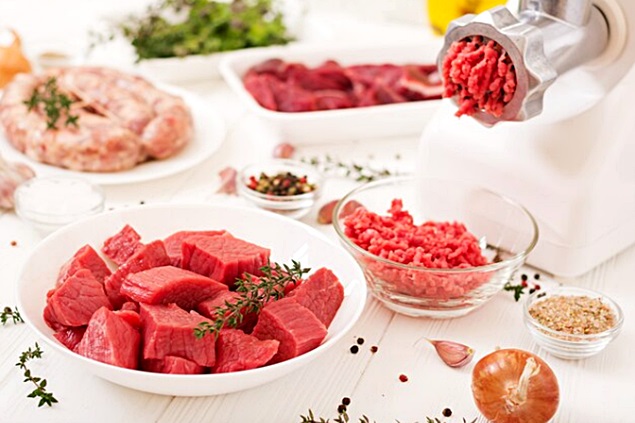1442

Recent research reveals that a fatty acid found in meat and dairy products enhances the ability of immune cells to fight against tumors, as noted by FoodNavigator.
A reverse perspective
In recent years, excessive consumption of meat and dairy has been increasingly associated with an elevated risk of cancer.
Red meat has been classified as Group 2A by the World Health Organization (WHO), meaning it is "probably carcinogenic" to humans. Processed meats such as bacon, sausage, and salami are classified as Group 1 carcinogens, known to cause cancer.
Simultaneously, dairy consumption has been linked to a higher risk of developing breast cancer, prostate cancer, and liver cancer.
However, fresh research from the University of Chicago suggests that a nutrient found in beef, lamb, and dairy products may actually improve defense against cancer. The nutrient in question is trans-vaccenic acid (TVA).
TVA has a "very targeted" mechanism
TVA is a long-chain fatty acid found in meat and dairy from grazing animals such as cows and sheep. The fatty acid is also present in human milk, but the body cannot produce it on its own.
TVA has only recently been tested by scientists to see how it influences cancer development and responds to cancer treatments.
After assembling a library of "blood nutrient" compounds, consisting of 255 bioactive molecules derived from nutrients, researchers analyzed these compounds to test their ability to influence anti-tumor immunity by activating CD8+ T cells – a group of immune cells critical for killing cancer or viral-infected cells.
Using both human and mouse cells, the most effective six compounds were selected. Among the six, TVA was found to perform the best.
"Focusing on nutrients that can activate T cell responses, we found one that actually enhances anti-tumor immunity by activating an important immune pathway," explained Jing Chen, Janet Davison Rowley Distinguished Service Professor of Medicine at the University of Chicago and one of the senior authors.
Interestingly, in the body, only about 20% of TVA is broken down into other secondary products. The remaining 80% circulates in the blood, suggesting it may have another function.
"To see that a single nutrient like TVA has a very targeted mechanism on a type of targeted immune cell... I find that truly amazing and intriguing," Chen commented.
Potential to aid those fighting cancer
To better understand TVA's potential, scientists conducted experiments with cells and mouse models of different types of tumors. When mice were fed a diet enriched with TVA, the tumor growth potential significantly decreased for two types of cancer: melanoma and colon cancer.
Compared to mice fed a control diet, the TVA diet also increased the ability of CD8+ T cells to infiltrate tumors.
Molecular and genetic analyses were conducted to try to understand exactly how TVA affects T cells. It was found that TVA deactivates a receptor on the cell surface called GPR43, usually activated by short-chain fatty acids, often produced by the gut microbiota.
According to the research team, TVA surpasses these short-chain fatty acids and activates a cellular signaling process called the CREB pathway. When the GPR43 receptor was removed from CD8+ T cells in mouse models, the improved tumor-fighting ability was lost.
To investigate how TVA has the potential to benefit people fighting cancer, the research team analyzed blood samples from patients treated with CAR-T cell immunotherapy for lymphoma. Patients who tended to respond better to treatment also had higher levels of TVA in their blood.
Testing leukemia cell lines showed that TVA enhanced the ability of an immunotherapy drug to kill leukemia cells.
Not an excuse to eat more burgers and ice cream
Before meat and dairy enthusiasts start salivating at the idea of eating more for health, the findings are not an excuse to consume more burgers and ice cream.
Rather, the study suggests that TVA could be used as a dietary supplement - rather than a food source - to assist various T cell-based cancer treatments.
Chen also suggested that other nutrients may have similar benefits. "There are early data showing that other plant-based fatty acids signal through a similar receptor, so we think there is a good possibility that plant nutrients might be able to do the same thing by activating the CREB pathway."
In the future, the scientific team hopes to build a comprehensive library of nutrients circulating in the blood - like TVA - to better understand their impact on things such as immunity and aging.
"After millions of years of evolution, there are only a few hundred metabolites derived from food that end up circulating in the blood, so it means they might have some importance in our biology," Chen said.
Source: Nature 'Trans-vaccenic acid reprograms CD8+ T cells and anti-tumour immunity'





